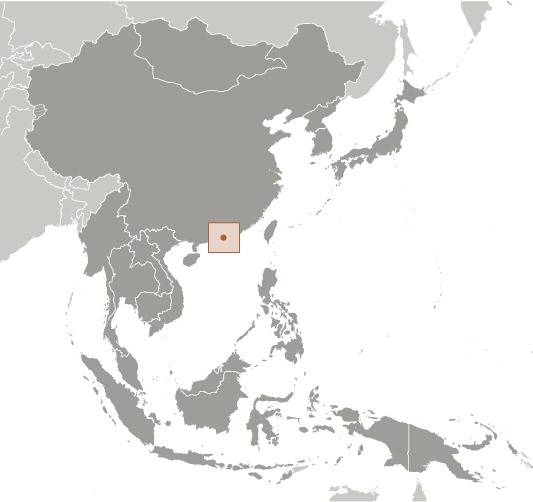Country Summary




Introduction
Background
Occupied by the UK in 1841, Hong Kong was formally ceded by China the following year. Various adjacent lands were added later in the 19th century. Pursuant to an agreement signed by China and the UK on 19 December 1984, Hong Kong became the Hong Kong Special Administrative Region of the People's Republic of China on 1 July 1997.
Geography
Area
total: 1,108 sq km
land: 1,073 sq km
water: 35 sq km
Climate
subtropical monsoon; cool and humid in winter, hot and rainy from spring through summer, warm and sunny in fall
Natural resources
outstanding deepwater harbor, feldspar
People and Society
Population
7,276,588 (2022 est.)
Ethnic groups
Chinese 92%, Filipino 2.5%, Indonesian 2.1%, other 3.4% (2016 est.)
Languages
Cantonese (official) 88.9%, English (official) 4.3%, Mandarin (official) 1.9%, other Chinese dialects 3.1%, other 1.9% (2016 est.)
Religions
Buddhist or Taoist 27.9%, Protestant 6.7%, Roman Catholic 5.3%, Muslim 4.2%, Hindu 1.4%, Sikh 0.2%, other or none 54.3% (2016 est.)
Population growth rate
0.17% (2022 est.)
Government
Government type
presidential limited democracy; a special administrative region of the People's Republic of China
Executive branch
chief of state: President of China XI Jinping (since 14 March 2013)
head of government: Chief Executive John LEE Ka-chieu (since 1 July 2022)
Legislative branch
description: unicameral Legislative Council or LegCo (90 seats); 20 members directly elected in 2-seat constituencies, 30 indirectly elected by the approximately 220,000 members of various functional constituencies based on a variety of methods, and 50 indirectly elected by the 1,500-member Election Committee; members serve 4-year terms; note - in March 2021, China's National People's Congress amended the electoral rules and system for the LegCo; the total number of seats increased from 70 to 90, directly elected geographical constituencies were reduced from 35 to 20 seats, while trade-based indirectly elected functional constituencies remained at 30; an additional 40 seats were elected by the 1,500-member Election Commission; all political candidates are evaluated by the Candidate Eligibility Review Committee (CERC), established in April 2022; the CERC consists of the chairperson, 2-4 official members, and 1-3 non-official members, all appointed by the chief executive
Economy
Economic overview
high-income tourism- and services-based economy; global financial hub; COVID-19 and political protests fueled recent recession; ongoing recovery but lower-skilled unemployment remains high; investing in job-reskilling programs
Real GDP (purchasing power parity)
$420.13 billion (2020 est.)
Real GDP per capita
$56,200 (2020 est.)
Agricultural products
pork, poultry, spinach, vegetables, pork offals, game meat, fruit, lettuce, green onions, pig fat
Industries
trading and logistics, financial services, professional services, tourism, cultural and creative, clothing and textiles, shipping, electronics, toys, clocks and watches
Exports
$615.88 billion (2020 est.)
Exports - partners
China 23%, India 14%, Netherlands 6%, United Kingdom 5% (2019)
Exports - commodities
gold, broadcasting equipment, integrated circuits, diamonds, telephones (2019)
Imports
$609.13 billion (2020 est.)
Imports - partners
China 46%, Taiwan 7%, Singapore 7%, South Korea 5%, United States 5%, Japan 5% (2019)
Imports - commodities
integrated circuits, broadcasting equipment, office machinery, telephones, diamonds (2019)
Exchange rates
Hong Kong dollars (HKD) per US dollar -
Page last updated: Monday, September 12, 2022
